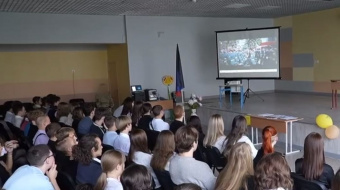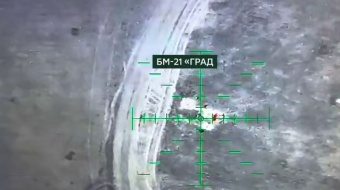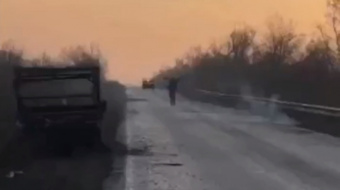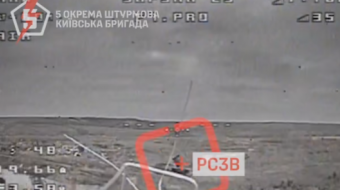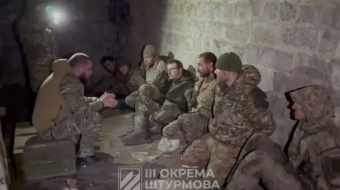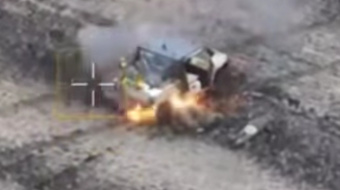Donbas fell out of Ukrainian’s economy. Part 2
Donbas fell out of Ukrainian’s economy. Part 2
Donbas fell out of Ukrainian’s economy. Part 1
Halina Kalachyova for The Economichna Pravda
“The problem of diarchy is connected not only with Donetsk Railway, but other infrastructure companies as well, for example, regional electricity suppliers. Who are people paying for electricity today? Where do regional companies get it?” Artemiy Yershov, expert in economic issues, asks.
How may the work of these companies be coordinated and how will managerial powers be distributed taking into account the fact that Kyiv does not recognize the self-proclaimed republics is a very complicated question, says the expert. – We have to find the answer to it.
This is not the only problem. The deployment of assets in the ATO zone may be turns into accusation of financing terrorism and get under sanctions any moment.
The last example is the search in the office of “Parallel” company. It was conducted by the Security Service of Ukraine within the framework of the criminal procedure under Article 258-5 of the Criminal Code (financing terrorism). The company is a part of Akhmetov’s “SCM” holding. Its office is located in Zaporizhzhya, but the chain of gas stations is working mostly in the east.
Rinat Akhmetov lost the chance to suppress separatism at the very beginning of the events. Photo sport.ua
“I will present one more example. In the West, people work on credit; goods are delivered without prepayment. There are cases when terms of payment are tougher for companies with assets on occupied territories. For example, they will not be given more than three weeks to make payment”, a representative of one of the companies producing excise goods says to The EP.
The future depends on policy It is understandable that the future of big business in the ATO zone depends on the policy of Ukraine with respect to self-proclaimed “L-DPR”.
“If there is Transnistria scenario, the question arises how the products of these businesses will be perceived in Ukraine. For all foreign contractors the production of, for example, Alchevsk Metallurgical Mills will be considered Ukrainian. The problem is whether it will get to the territory of Ukraine and how”, says the expert.
In an interview to The EP, economist Anatoliy Amelin determined several variants of the future of big business connected with the east.
1. In case the region is reintegrated into Ukraine in accordance with the Minsk Agreements, the hostilities will stop. In this case, enterprises will gradually return to their usual format of work. The restoration will be difficult as a part of markets has been lost and the resources are expensive. New zones with tax concessions may be created.
2. The reintegration of the region is completed under Ukrainian terms. This is not very probable. This scenario is possible as a result of an abrupt weakening of Russia or the complete victory of Ukraine in the war, or, maybe, some other agreements or events.
This scenario resembles the first one. After the war, Ukraine will restore the region, attracts investors and create conditions for them, including tax stimuli. In the opposite case, a social explosion is inevitable.
3. The situation in the East is developing in the format of “indefinite swamp”. Big business is losing positions. On the one hand, it is good for occupants when companies continue working. That lowers the risk of social protests, and people earn money. At present, the industrial production goes down, businesses close, people lose jobs. If a program aimed at creating jobs is not launched (infrastructural projects – construction, road repairing, restoration of enterprises), there may be hunger riots and rise of criminality.
On the other hand, the region, de-facto, is in the state of war. Markets are being lost, enterprises are destroyed because of the war; there is no access to resources. The situation is geting worse. The risk of “nationalization” increases.
4. The occupied territories become a part of Russia. The possibility is not very plausible because it is not profitable for Russia due to a lot of reasons. But even if this happens, why Russia should finance the Donbas at the expense of its other subsidized regions. There is no sense for Russia to support this Ukrainian territory – Russia has coal, and it is cheaper, and its metallurgy is more modernized.
So far, the rebel region is living according to the third scenario. It is not known whether the power will choose a different one. However, Premier Arseniy Yatsenyuk has already spoken about the possibility of DTEK nationalization.
Photo odnako.su
New service "Explain Ukraine". This is a daily mailout of two articles which were written about the situation in the Donbas by Donbas journalists and translated into English. Honest vision of people who work in the field is unbiased and fresh which is crucial in the world which is full of desinformation and propaganda. We try to share this vision in out daily mailout. You can subscribe here.










